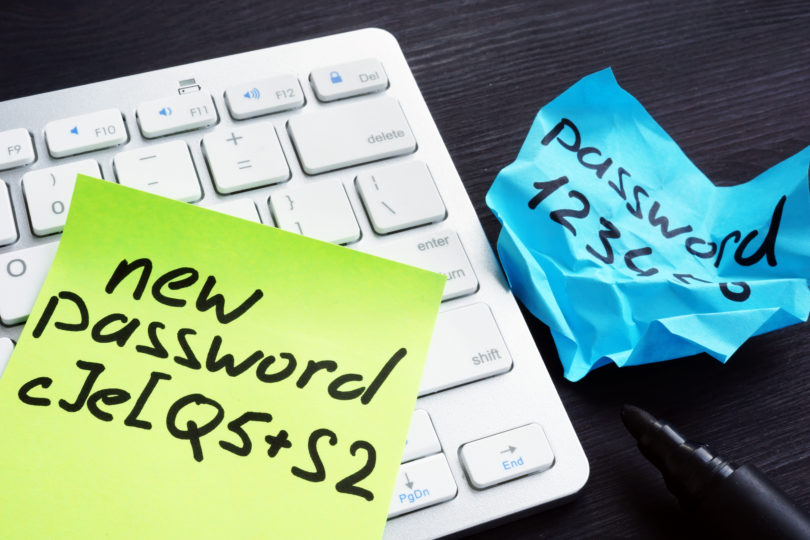Even though coronavirus has taken the lead in all news stories for the year, online security is still nothing to overlook. Especially with so many people spending more time than ever online for work, school, and play, it is very important to make sure you have used proper security in the selection of your passwords. Unfortunately, many people still use passwords that are easy to guess or crack and that can lead to a whole lot of problems!
If One of These 25 Passwords Are Yours, Time to Change It!
I know many are not traveling but that does not mean you should not be keeping an eye on your frequent flyer or hotel accounts for breaches or points that are not there anymore!
One great way to secure your accounts is to use two-factor authentication, if the site allows for that. This involves getting a security key from a program that generates it or using another device to confirm that you are logging in. Unfortunately, most travel sites do not use this but at least IHG stopped using 4 digit passcodes for their accounts!
Anyway, here is the 2020 list of worst passwords from NordPass who compiled it from a database containing over 250 million passwords! To see the full list and their methodology, visit the site. Here are the top 25 – if you see yours here, time to change it!
- 123456 – up 2 positions from last year
- 123456789 – up 3 positions from last year
- picture1 – new one on the list
- password – up 5 positions from last year
- 12345678 – up 6 positions form last year
- 111111 – up 17 positions from last year
- 123123 – up 18 positions from last year
- 12345 – down 1 position from last year
- 1234567890 – up 11 positions from last year
- senha – new to the list (Portuguese for “password”)
- 1234567 – up 12 positions from last year
- qwerty – down 10 positions from last year
- abc123 – up 16 positions from last year
- Million2 – new to the list
- 000000 – up 28 positions from last year
- 1234 – down 15 positions from last year
- iloveyou – down 14 positions from last year
- aaron431 – new to the list
- password1 – up 29 positions from last year
- qqww1122 – new to the list
- 123 – up 199 positions from last year!
- omgpop – new to the list
- 123321 – up 39 positions from last year
- 654321 – up 36 positions from last year
- qwertyuiop – down 22 positions from last year
It is somewhat funny to me that “qwerty” type passwords dropped – my guess is that many don’t realize what that means. 🙂 Also funny to me is the “654321” – like the people using that thought they were being incredibly clever even though it took less than a second for that to be broken!
Most of these passwords took less than a second to crack with “aaron431” and “Million2” taking 3 hours to crack.
Bottom Line
When making passwords online, browsers like Safari will suggest very complex passwords and then keep them in the browser or the keychain for instant recall on your devices. If you want to make them yourself, the longer the better with a combination of letters (upper and lower), numbers, and special characters. Try to avoid using sequential numbers or letters and avoid names.
You can also use password managers to help you access your various online systems. Anything is better than using an easy-to-use password like the ones above!
Sure, that makes it harder to remember but also harder to crack! Years ago, I worked for a defense contractor. We had to rotate passwords every few weeks and use different ones for the each of the various systems we had access to. The crazy thing is that even at this type of place, colleagues had their passwords for the various secret and top secret access points on sticky notes taped to their monitors!








